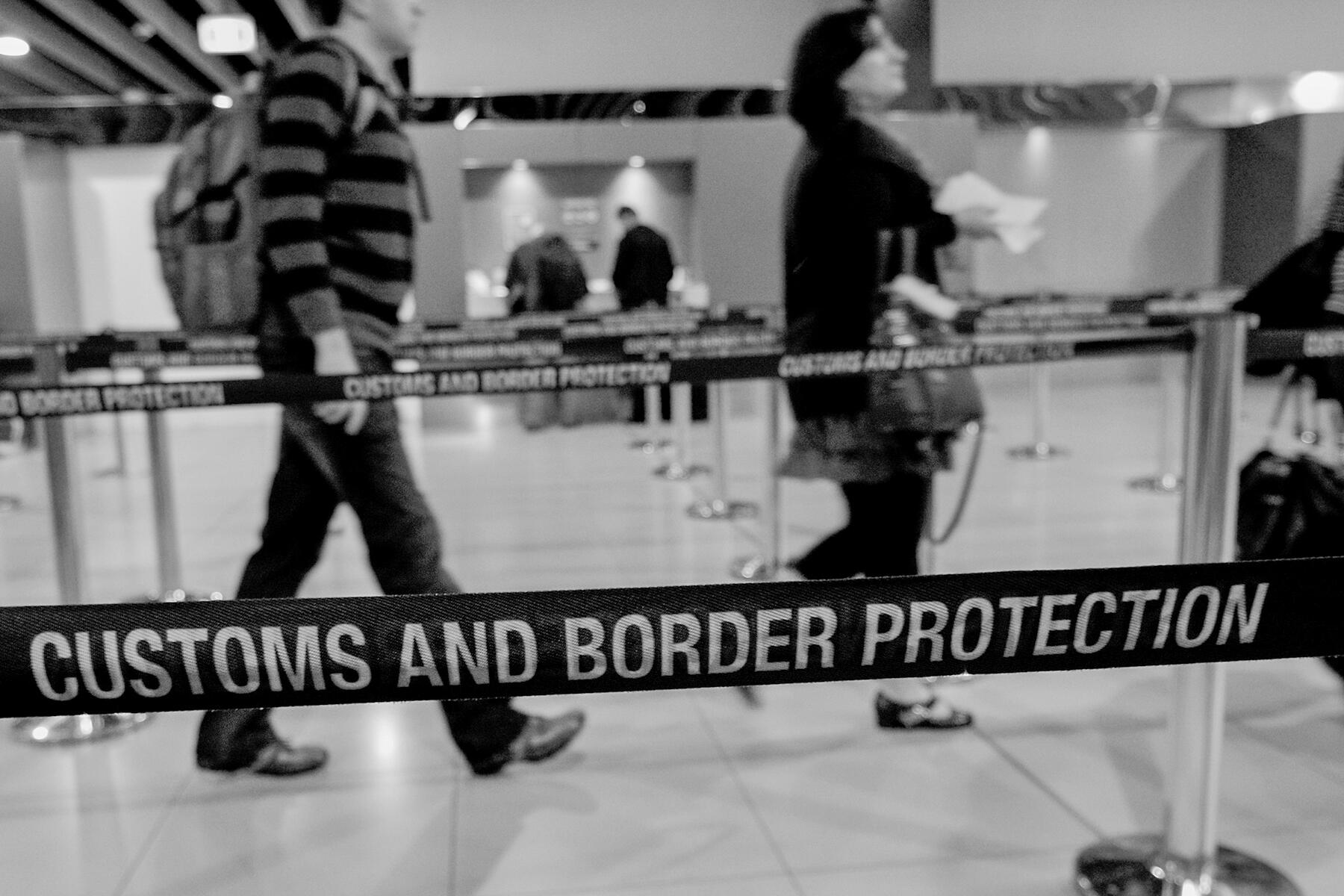What may seem like a simple activity can get you tangled in a deportation mess.
Housesitting and petsitting have become budget-friendly ways to travel. In exchange for room and board, travelers take care of someone’s house or pets (or both) and can experience a destination. With platforms like TrustedHousesitters and HouseSitMatch, no money exchanges hands—members pay for a subscription fee to the app instead.
But here’s where it gets tricky. People traveling to different countries as housesitters typically enter those countries on tourist visas–however, many countries may not recognize housesitting as a “tourist activity.” It may be considered a work opportunity, something that’s illegal on a tourist visa. And if it’s deemed that a tourist has misused their visa, they can be deported.
This is what happened with Australian contractor Madolline Gourley.
The petsitter was on her way to Canada in June last year for an assignment she’d organized via TrustedHousesitters. Gourley booked her flight through Los Angeles, where she had to go through U.S. immigration. The immigration officer noticed she’d previously spent several months in the United States, and when asked why, she told the truth: she had been pet-sitting. She was deported from the U.S.
The deportation notice that Gourley received, and Fodor’s reviewed, claimed, she “is an intending immigrant without an immigrant visa.”
Recommended Fodor’s Video
Related: Is This Budget Travel Hack Worth the Risk?
A spokesperson of the U.S. Customs and Border Patrol told Business Insider last year that housesitting does breach visa guidelines. “Under the Visa Waiver Program, non-immigrant foreign nationals visiting the United States as tourists (visitors for pleasure), engaging in unauthorized employment is not allowed. For example, working as a house-and-animal sitter in exchange for room and board.”
After the deportation, Gourley can no longer enter the U.S. via the visa waiver program, which allows travelers to obtain an Electronic System for Travel Authorization (ESTA) to stay in the country for 90 days. Australia is included in the U.S. visa waiver program.
Apart from tourism and visiting friends and family, other valid reasons for entrance include consulting business associates, negotiating a contract, and attending a short training or conference–but not employment. You also need an onward ticket to a country that doesn’t border the U.S.—another Australian was deported last year for failing to provide one.
But it’s not just the U.S. that has these policies around house- and pet-sitting.
In the U.K., housesitter Corrine Petteys faced troubles while trying to enter the country on a tourist visa for a housesitting gig. She, too, was deported.
And it’s nothing new. A similar circumstance led to a couple being deported from the U.S. more than a decade ago.
It’s Risky Business
Immigration attorney and CEO of LegalAdvice.com David Reische says the U.S. immigration law is clear: a visitor on a tourist visa is not permitted to work or engage in any activities for which they would otherwise receive compensation, even if the amount of compensation is zero.
New York-based attorney Min Hwan Ahn opines that it may be a bit of a gray area, and each case will be individually assessed at the discretion of immigration officers. Housesitting, petsitting, and couch surfing generally fall under the category of tourism or leisure activities if there is no financial compensation. “While it is not explicitly paid work, it can still be considered as providing a service in exchange for accommodation or other benefits. As such, it may be viewed as a violation of the terms of the tourist visa.”
For many, it hasn’t been a problem to engage in housesitting activities on a tourist visa—after all, there are professional sitters who do this full-time without any homebase. Kelly Hayes-Raitt housesat full-time for 12 years and wrote a book on the subject, How to Become a Housesitter: Insider Tips From the HouseSit Diva. She tells us that she has always traveled on a visitor visa. “I consider housesitting to be volunteering—just as if I were traveling to volunteer to count nesting turtle eggs!”
Related: I Took a Career Break and Spent Less Than $25K Living in Europe for a Year
However, Ahn advises against traveling on a tourist visa even if it’s for unpaid work. “While housesitting and petsitting without compensation might be allowed under some circumstances, it is essential to understand that immigration authorities have wide discretion in interpreting regulations and determining admissibility.”
What if you are detained? Stay calm, cooperate with officials, request legal counsel, and consult your country’s embassy, Ahn advises. Never lie to the immigration authorities about your intentions because it may result in deportation, cancellation of visa, and even bans.
You can file for an appeal under certain circumstances before being removed from the U.S. “Individuals who have been placed in removal proceedings may file an appeal with the Board of Immigration Appeals (BIA) within 30 days of the immigration judge’s decision. If the BIA does not grant the appeal, then individuals can file a motion to reconsider or a motion for a stay of removal. Additionally, individuals may be able to seek relief from removal through various forms of relief such as asylum, cancellation of removal, or adjustment of status,” Reische counsels.
It’s Ultimately Your Responsibility
Min Hwan Ahn makes it clear that it’s not the company’s responsibility to ensure that their members travel with the right visas. They may offer guidance or support, but they are not obligated to intervene. “It is ultimately up to the individual traveler to research and acquire necessary documentation before embarking on their trip.”
Angela Laws, Head of Community & PR of TrustedHousesitters, tells Fodor’s that the company has taken advice from immigration lawyers in the U.S. and the U.K. “Because the reason for travel for TrustedHousesitters-arranged exchanges is leisure, TrustedHousesitters petsitting does not contravene immigration guidelines.”
All members are informed about requirements and the website offers letters by immigration lawyers that members can take along and show border officials, she adds. “It is important that people check the individual country visa and immigration guidelines before traveling and carry the correct documentation.”
Laws says there have been a handful of cases when entry has been challenging, and in rarer cases, sitters have been refused entry. She also mentions that the company is aware of the general circumstances of Madolline Gourley’s deportation, and they are sorry that this happened to a member of TrustedHousesitters who had previously enjoyed so many successful sits.
UK-based HouseSitMatch.com informs its members that there are no housesitting visas and the company sends information and tips, even blogs about instances when things go south with members and non-members.
CEO Lamia Walker says, “We describe this arrangement [petsitting/housesitting] as an ‘Exchange of Services’. It is not for financial gain. If the traveler who is taking up a housesitting and petsitting exchange of services assignment is clear that they will make no financial gain from this, then there should be no problem.”
Walker claims the company has never had a member turned away from a country.
Is it a better, safer idea to housesit in your home country? Maybe. But if you do want to travel abroad, consult an immigration attorney beforehand and determine the right visa for you. You may be able to apply for a work visa—double-check the laws and processes before you say yes to an assignment.
Every country has different laws and you should read the fine print each and every time because laws can also change without notice.





The article raises important questions about visas, work permits, and insurance, and offers some practical tips for navigating these issues. Overall, it's a great starting point for anyone interested in exploring this type of travel experience and is looking to do so in a responsible and legal way.